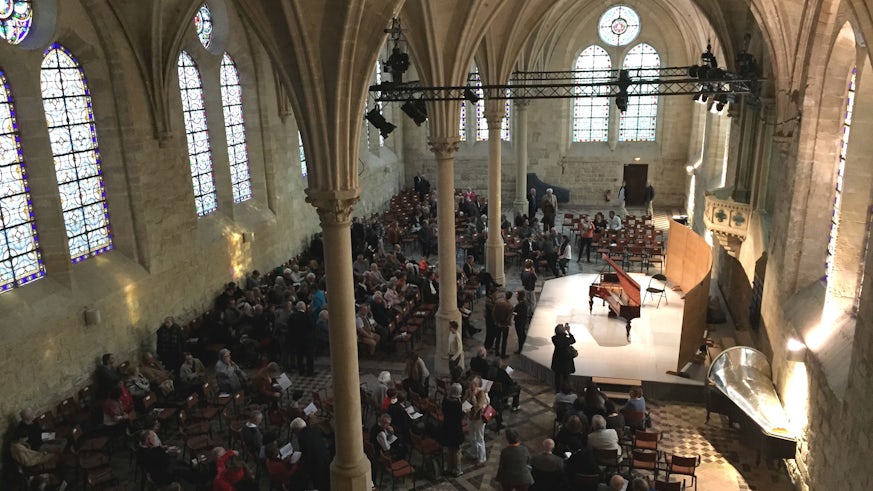Romantic Eloquence at the Piano: The Vienna and Paris of Beethoven and Chopin
1 November 2016

School of Music lecturer Dr Keith Chapin was recently involved in organizing an international conference and concert series exploring the role of ideals of eloquence and expression in the development of Romantic cultures of piano performance.
The event entitled ‘L’éloquence romantique au piano: Vienne et Paris autour de Beethoven et Chopin’ took place between 7 and 11 October 2016 at both the Abbaye de Royaumont and the Cité de la Musique in Paris. This international colloquium was presented through a series of master classes and concerts examined facets of the production of expression, focusing on the interaction between musicians and the specific instruments of the time.
Professor Kenneth Hamilton, Head of the School of Music, was one of the participants in the conference that was organized by a team of experienced academics in the field of music including Dr Keith Chapin, Senior Lecturer in the School, Jeanne Roudet of the Université Paris-Sorbonne, Tom Beghin of McGill University and the Orpheus Institute, and Thomas Vernet of the Fondation Royaumont.
Loosely organized around the works of renowned composers Beethoven and Chopin, the four day event sought to provide a snapshot of pianistic eloquence in two European centres while allowing conversations to take place between performers, instrument makers, experienced and emergent artists and scholars, and an interested public.
Each day of the conference involved participation on three different levels of engagement: evocative scholarly reflection that addressed issues including aesthetics, piano construction, performance and pedagogy; master classes with professors of the Schola Cantorum, Basel, Switzerland and Cornell University, USA; and concerts by an international roster of pianists.
Professor Halina Goldberg of Indiana University, USA, one of the participants of the event, wrote on her experience: “Over the years I have had the opportunity to attend numerous seminars in many countries, but this one will remain in my memory as by far the best of them. Bringing together scholars from different countries with top-notch performers and instrument specialists yielded wonderful results. I have learned an enormous amount from my colleagues. The concerts provided me with a new understanding of the historical sound the early 19th century, but also lifted my spirits. I was particularly impressed by the performers' engagement with the intellectual issues surrounding this music, and the enthusiastic participation of our student-colleagues who attended the seminar.”